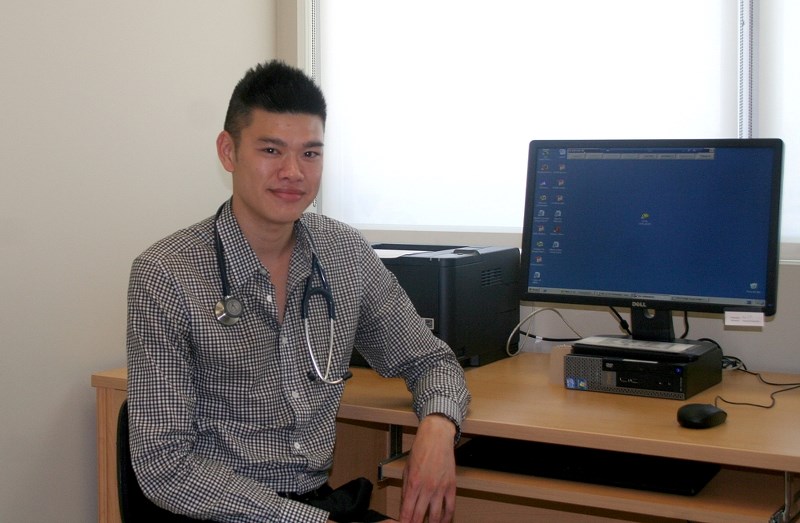Dr. Charles Wong has returned to St. Paul after completing his residency, and now is working full-time as the newest physician at the Wellness Centre.
Wong has completed his medical school program with the University of Alberta, and describes his move to St. Paul from Edmonton as a big change. Having lived in Vancouver and Edmonton, it was a considerable adjustment when he moved to St. Paul for his residency.
But, following his residency in town, Wong enjoyed the experience working in the community so much that he has decided to come back to practice medicine in St. Paul.
“I was placed here and liked it here. After a two-month residency, I fell in love with the staff and the medicine that they do here. It’s a good community,” says Wong.
“I prefer practicing rural medicine. There is more variety. You do everything from clinical to hospital work, and there are more opportunities to hone your skills through that variety,” he adds.
Another thing that enticed Wong to return to St. Paul was the positive, friendly reception he received from the community.
“There’s a small town mentality here. It’s a welcoming place, and it’s enjoyable to work with the staff here.” He adds, “Everything is so close. You can just walk down the street to get your groceries, and the lakes and landscape out here are beautiful as well.”
Wong admits another thing that drew him to a rural community like St. Paul was the challenge of rural medicine. Aside from being varied, Wong explains that rural medicine helps develop one’s skills since resources are sometimes more scarce, and often working in a clinical environment presents logistical challenges.
“Being in a rural community, you have scarce resources and more clinical acumen is needed,” he says. “You need to plan ahead for what needs to be done and sent back to the city. You don’t have a CT scanner or that kind of equipment that they do in the city, so you need to use clinical skills to figure out what’s going on with patients – it’s a real test of ability.”



